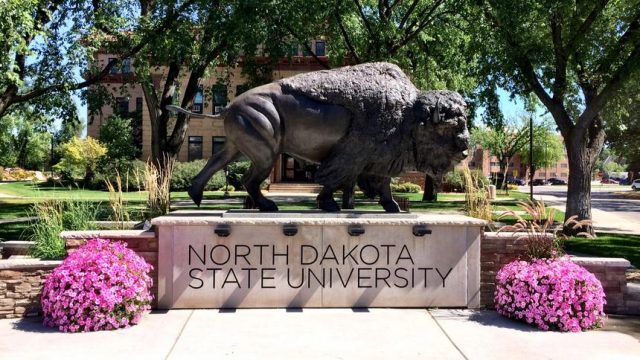Would a New Governance Structure for North Dakota’s Universities Really Change Anything?

Earlier this week it appeared as though the cause of reforming the North Dakota University System’s governance structure was dead. But then the state House reconsidered a previously defeated bill which would enlarge the State Board of Higher Education, and because it’s an amendment to the state constitution the issue will be in front of voters this election cycle.
Meanwhile Don Morton, the current chairman of the SBHE and a member of Governor Doug Burgum’s task force on this issue, has said he’d like for voters to be able to decide on a two-board model as well. “As a task force member, my druthers would be to also give the voters the option of the one board that they’re talking about or the two boards,” he told reporter John Hageman, perhaps suggesting the possibility of an initiated measure alongside the Legislature’s proposal.
A multi-board model, giving the state’s two research universities in Fargo and Grand Forks their own governance separate from the other nine institutions in the system, was the recommendation of Burgum’s task force but legislation implementing it was defeated by lawmakers earlier this year.
[mks_pullquote align=”right” width=”300″ size=”24″ bg_color=”#ffffff” txt_color=”#000000″]We, as a society, need to have better priorities when it comes to what we expect from our universities.[/mks_pullquote]
I’m not sure what would happen if we put two constitutional amendments reforming higher education governance and they both passed.
That aside, I’m not sure much in higher education will change whatever path voters choose. Whether it’s the status quo, a larger board, or multiple boards, I’m convinced the problem in higher education is one of priorities.
I’ve griped plenty about the governance of higher education over the years, and I do think there are reforms we could make which would help. The universities are too isolated from accountability to voters and elected officials, for one thing. Some will argue that this is a feature, not a bug, which defends the universities from “politics.” But politics are the means by which we govern, and as long as we’re talking about public institutions of education, they should be a part of the political process.
I also think the job of sitting on the SBHE is too large for what are part-time, volunteer board members.
If I were in charge of reform, I would have the members of the State Board of Higher Education serve at the pleasure of the governor. The governor currently appoints the board members, but he (or she, as the case may be) is not allowed to fire them. That should change.
Also, we should consider compensating the board members. Perhaps the position should even be a full-time job. I’d be open to debating that, but I do think we’d get a better class of leader on the board if the remuneration were more in line with the investment of time and effort serving on the board requires.
But, again, none of this is likely to address the root of dysfunction in the university system.
We, as a society, need to have better priorities when it comes to what we expect from our universities.
For a certain faction of the public, these institutions are little more than host bodies for sports programs. For them the students are just an excuse for a football team, hockey team, etc.
For another faction, the universities are economic development. A way to bring jobs and commerce to a community. The students are warm bodies who consume pizza, shop in local stores, and drink at local bars.
Even those who run our campuses have lost sight of their true purpose. Many of our university presidents seem far more interested in building ever larger campuses, and are willing to pursue indiscriminate enrollment growth to pack those buildings full.
In truth, our universities were created to serve the needs of the State of North Dakota on two fronts: Education for our students, and research to broaden the scope of human knowledge.
That’s it.
Until those who would lead our universities begin putting those priorities first, it won’t really matter how the governance of the university system is constituted.




